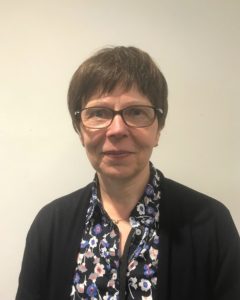
Tarja Pösö
Professor II
Research
Tarja Pösö holds a position as professor at the Faculty of Social Sciences (Tampere University) and is a professor II at the Department of Administration and Organization Theory (University of Bergen).
Tarja Pösö has extensive experience in the studies of child protection, social work and institutional practices, with a keen interest in cross-cultural perspectives and developing methods and ethics for child protection studies.
Her particular research interests are: 1) How social workers navigate among different sources of information and interest when making decisions and assessing the outcome of their decisions in child protection, 2) How the child welfare systems perceive and act with migrant children, 3) How the principle of ‘the child’s best interest’ is included in the decision-making process.
Publications
Prof. Pösö has more than 100 publications in national and international journals and edited books.
Link to publications: researchgate.net/profile/Tarja_Poesoe
Get to know Tarja
What does a typical day for you look like?
The days differ a lot depending on whether there will be teaching, administrative meetings or research work. On most days I will do a bit of everything. As I am involved in teaching and doing research in and about social work, some of my time is also taken by working with practitioners, service-users and policy-makers outside the university.
Can you describe your office space?
My university office is full of books and students’ papers – and with a beautiful view over Tampere. My office at home has more personal items such as an armchair which has followed me from my childhood home and a photograph of Freud’s couch in Vienna – you may interpret yourself what that means.
Is there a book you’d recommend within your field?
I read the book ‘The Protection of Children’ by Robert Dingwall, John Ekelaar and Topsy Murray many years ago and found it again quite recently. It has now become the book which I always read if I feel lost in my own study.
What is your background?
I have been educated in social work/social policy and psychology – my PhD is in social work – but have worked almost all my working career at the university.
If you had to choose a different field, what would it be?
This is a fascinating field so I am very pleased with the choice I made. However, I could have chosen social work or psychology as a professional practice.
What do you like most about your job? And what do you like the least?
I like learning about new things and new ways to think. I like the least the moments when academic work is just an artificial game.
What’s on your nightstand?
The book ‘The Secret History’ which I would like to finish very quickly to start the book ‘Exit West’.
A place you’ve been where you’d like to go back?
This is easy: Bergen!
